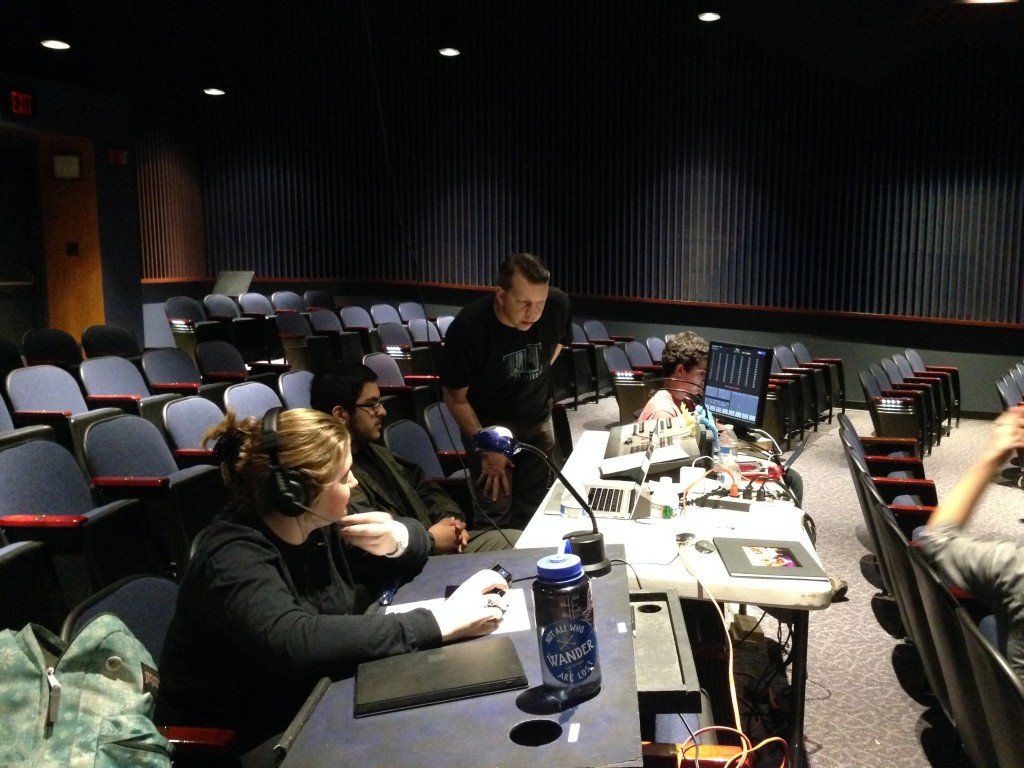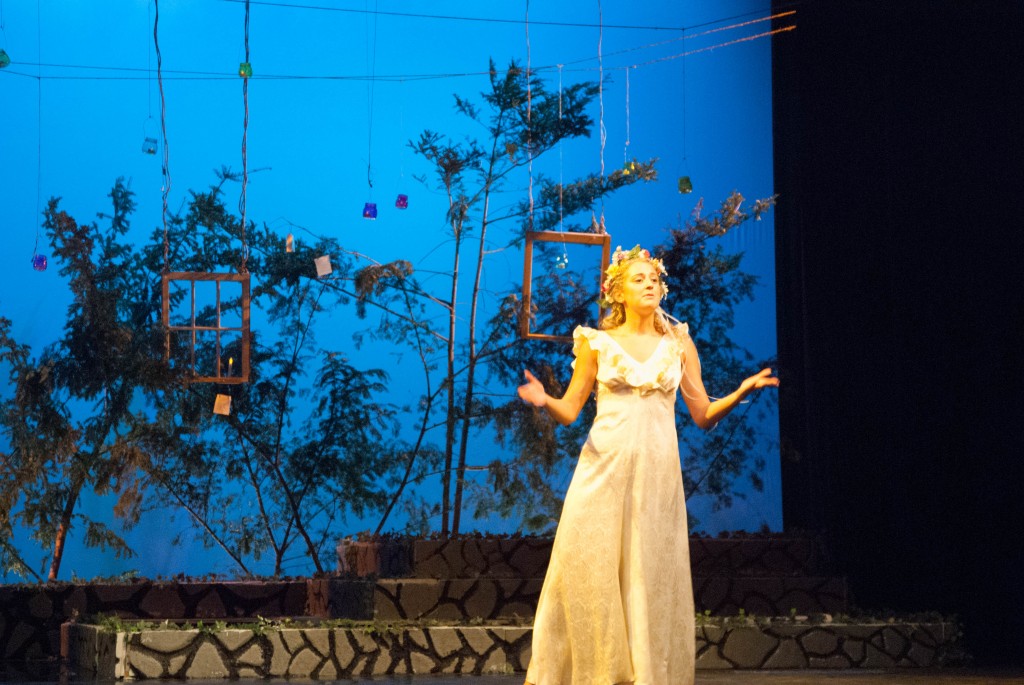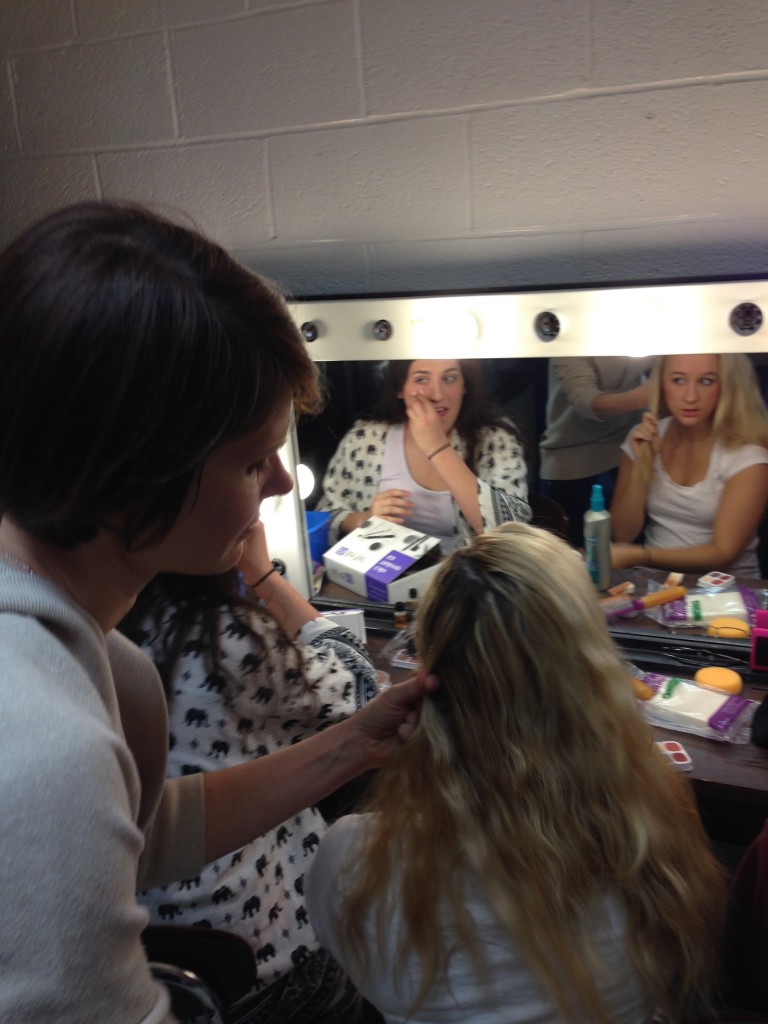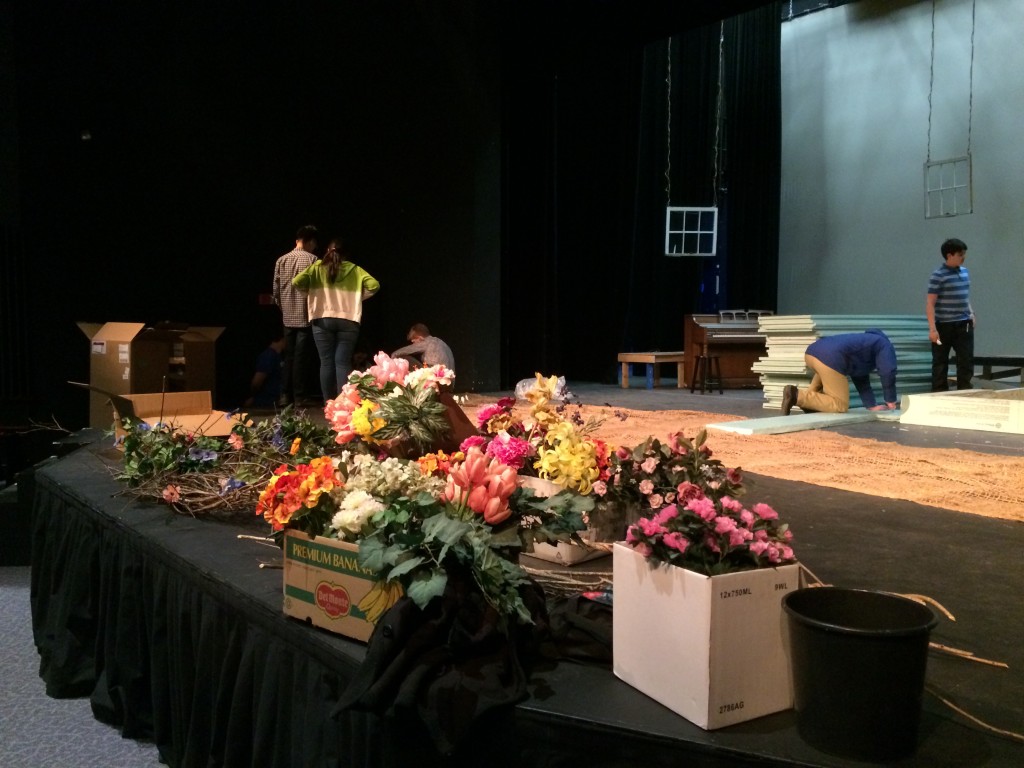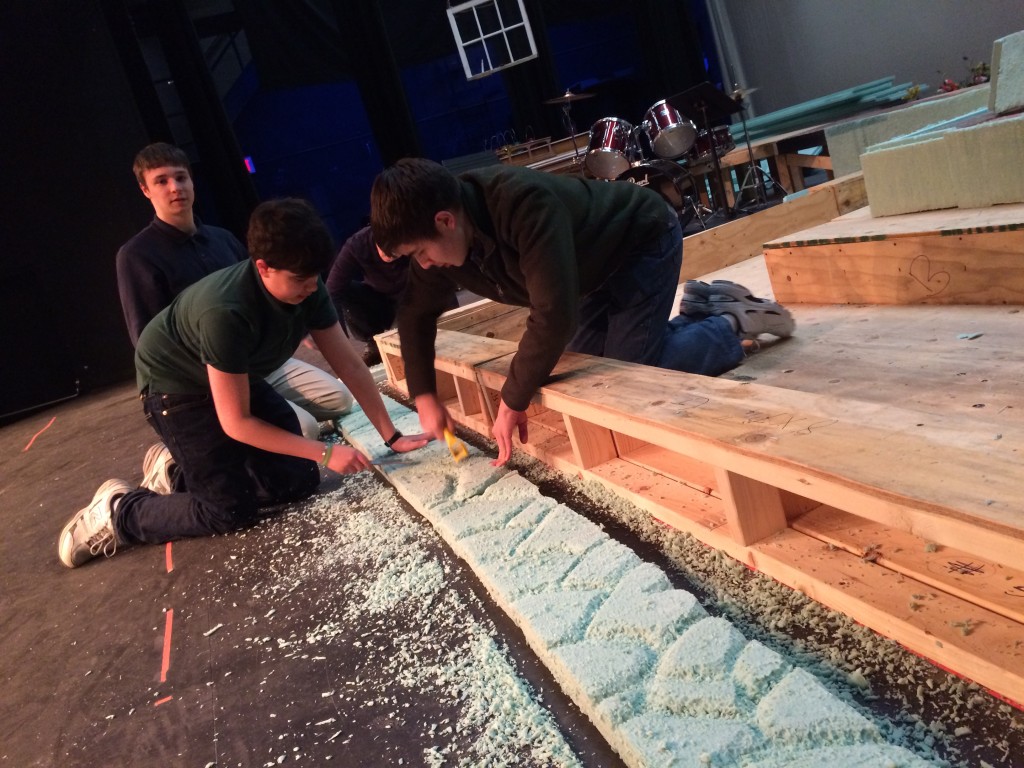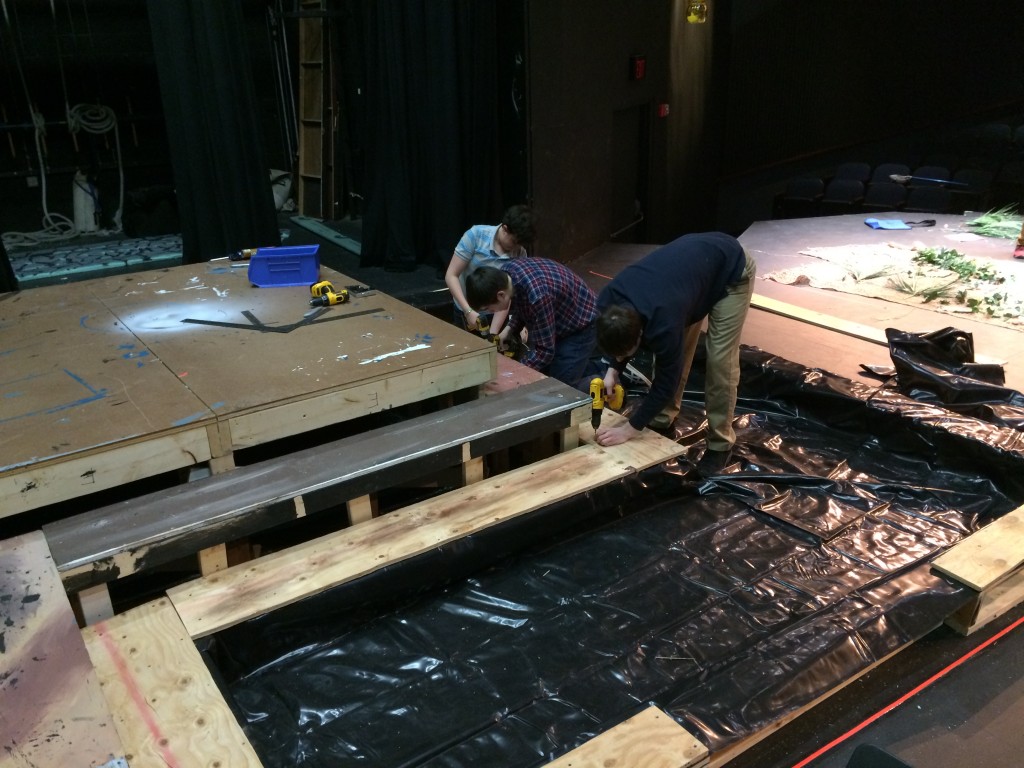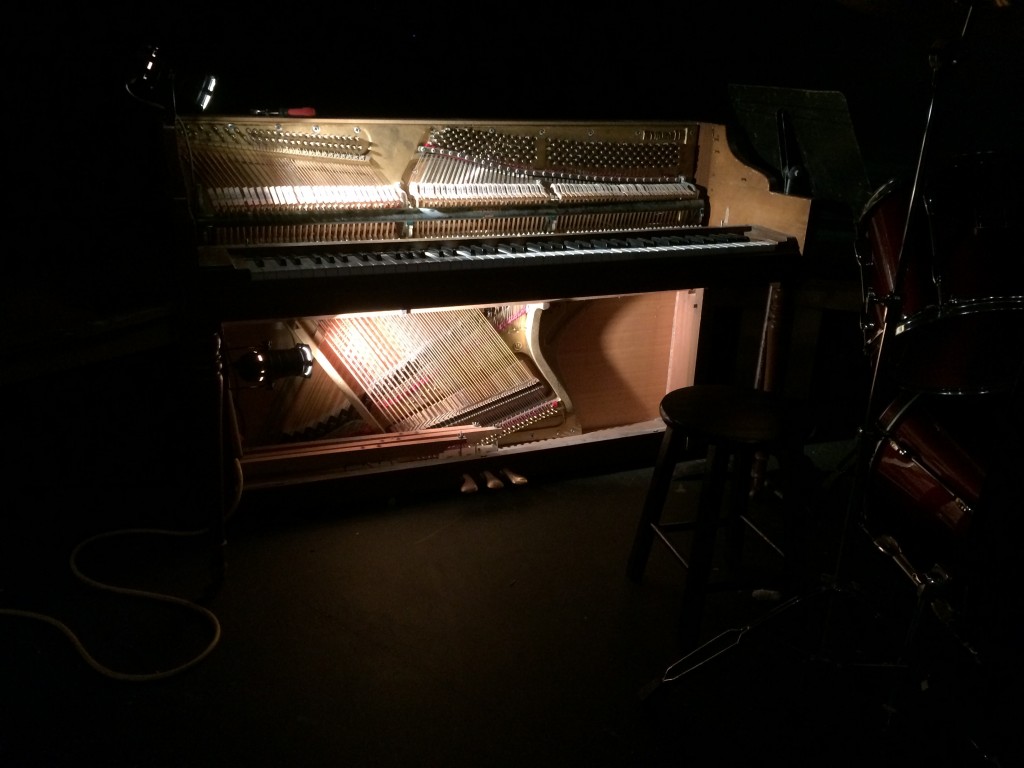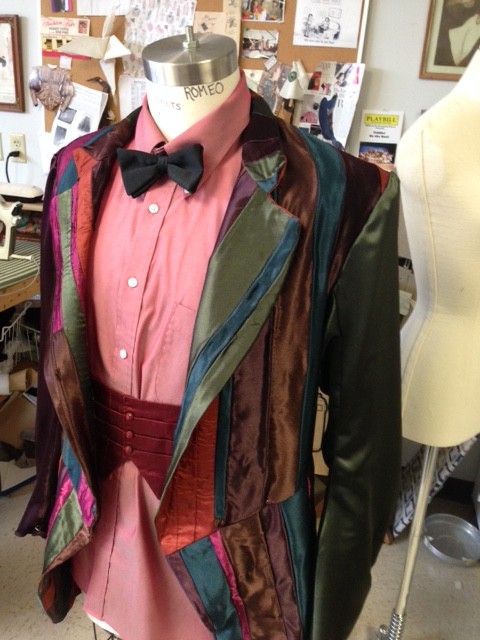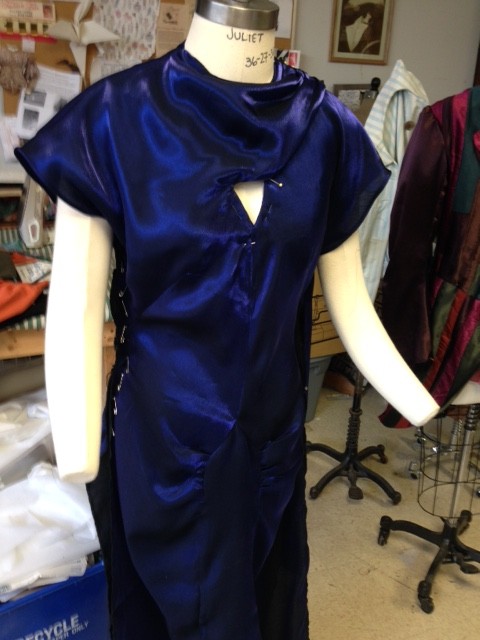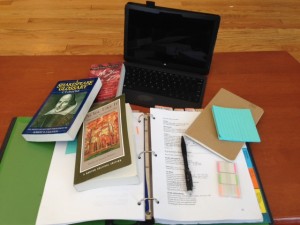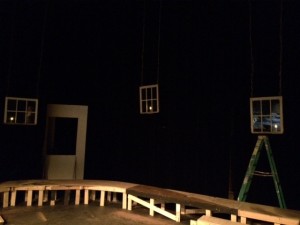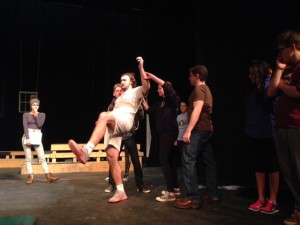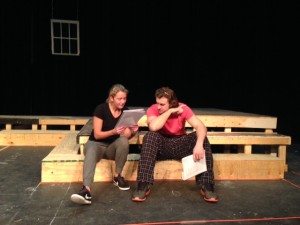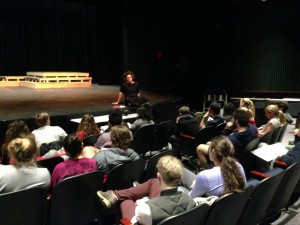Through support from the Williston+ program, which connects the Williston community with professors at the Five Colleges, we were able to host some of the Pioneer Valley’s most creative theatre minds in our Play Production course last Friday. The class, which focuses on directing for the stage, explores what it means to be a theatre artist and offers students a chance to develop an artistic perspective while examining how that perspective adds to contemporary theatrical practice. Daniel Kramer, Chair of the Smith Theatre Department and Associate Artistic Director of Chester Theatre, Priscilla Kane Hellweg, Executive Artistic Director of Holyoke based Enchanted Circle Theater and Hampshire College professor, and Eric Henry Sanders, playwright and Hampshire college instructor, engaged students in a lively, honest, and passionate conversation on these very topics.
When I set out to gather this group together my hope was that they could bestow terrific practical knowledge about directing to our students. Mr. Kramer brings years of experience directing award-winning theatre, Ms. Kane Hellweg’s nationally recognized community-engaged theatre company has been transforming lives for nearly forty years, and Mr. Sanders’ plays have been produced all over the world. Who better than this group to share the how-to of directing with my students?
What unfolded was even better than that. The visit evolved from a panel to a robust conversation between students, teacher, and visitors that examined the essence of why we do theatre. It all came down to something very simple- storytelling. Mr. Kramer spoke of the potential for theatre to create “empathetic imaginations” when actors inhabit characters unlike themselves, Ms. Kane Hellweg discussed how her work creates a permeable boundary between audience and performers that empowers audiences to become actors in their own narrative, Mr. Sanders conveyed the inherent power that storytelling has to change the way we examine our world when we include multiple perspectives. They agreed the keys to finding success in the theatre- and by success we are not talking about how lucrative our work is, but rather how transformative the work is for audiences and artists- is a spirit of giving. Without prompting, these visitors spoke a truth I hold very dear about creating and performing theatre- you must connect, collaborate, and give through the act of storytelling. Without these elements your piece will not touch hearts, change minds, or even entertain.
In reflecting on the panel, my students had a renewed sense of the importance of theatre, but more specifically a more clear picture of why they are so passionate about it. One student said “It is important to keep perspective on the reasons… you do something in order to have clarity in your work.” With that spirit they headed off to lead rehearsals for Theatre Lab, a collection of student-directed one-acts to be performed in February.
